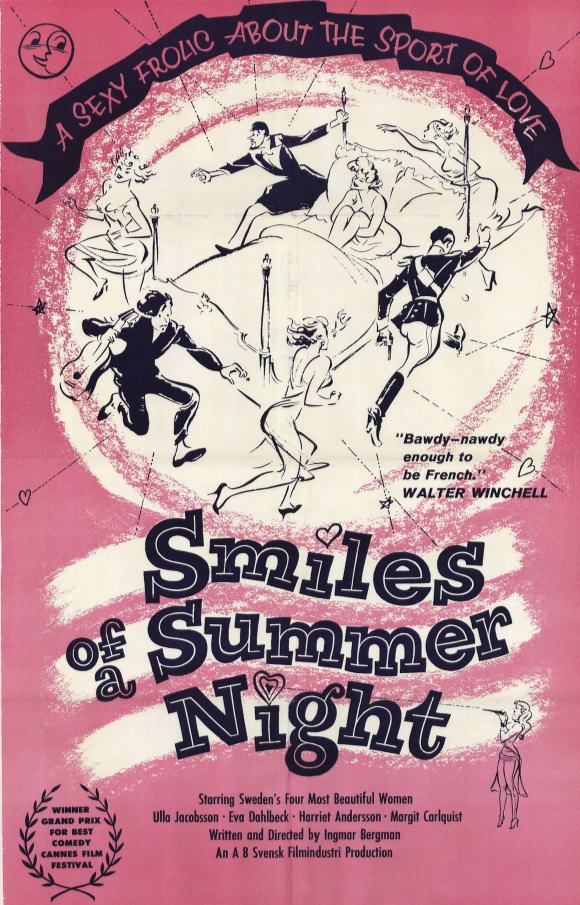
Swedish auteur Ingmar Bergman’s 1955 comedy, Smiles of a Summer Night is screening this Saturday at the International House. It was the first of Bergman’s films to receive international acclaim, and was followed by The Seventh Seal and Wild Strawberries. Set in the turn-of-the-century, the film follows four couples exchanging flirtations, promises and partners throughout the course of a chimerical, dimly-lit Scandinavian night. In line with the rest of Bergman’s oeuvre, the film poignantly captures masculine/feminine quips and quarrels with humor and sadness — the banter and witticisms are still spot-on, despite the film’s being over half of a century old. Smiles of a Summer Night stands out from the rest of Bergman’s body of work, maybe not only for its joie de vivre, but also for its lack of despair, and the high dramatic angst so characteristic of his films. With all its burlesque farce and period piece theatrics, Smiles would have made for a good play. The plot revolves around crisscrossed romantic affairs so tangled a love triangle will not suffice — it’s more like an octagon. There’s Frederik Egerman (Gunnar Bjornstrand) and his considerably younger second wife Anne (Ulla Jacobsson); Frederik’s son from his former marriage, the serious Henrik with his quasi-Oedipal desire for Anne; Frederik’s former mistress, the actress Desiree (Eva Dahlbeck), her courter the Count Malcom, and his wife. There is a buxom maid (Harriet Andersson) and a brawny farmhand. Desiree plots to rearrange the matches to secure her former lover Frederik, and so she has her mother—an elegant old woman rife with wise and droll commentary—invite them all for a weekend at her country estate. They attend, in search of escape, from marital ennui and the restless and relentless convictions of both youth and mid-life. Comedic exuberance and cat-and-mouse gaming ensues, and, in the end everyone finds love. In the beginning of the film, after being presented with theater tickets Anne feverishly proclaims, “What shall I wear?” and runs to her closet to gather her dresses. “The blue one with the feathers? The yellow one? Is it a comedy?” she asks. “I know. The white one goes with both laughter and tears.” Forgo Labor Day rules; an Ingmar Bergman film is an occasion for one and the other. — CAROLINE SCHMIDT
Curated News, Culture And Commentary. Plus, the Usual Sex, Drugs and Rock n' Roll
